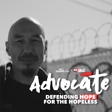
Why John School Doesn’t Work — A Radical New Approach to Stopping Sex Buying
In this powerful episode of the Trafficking Free America podcast, we dive deep into the controversial topic of "John School"—a court-mandated educational program for men caught purchasing sex. Our panel discusses why the traditional approach falls short and introduces an innovative alternative: John University, a trauma-informed, addiction recovery-based solution designed to address the root causes of sex buying. We explore the science of sex addiction, brain scans of porn addicts, and the stories of recovery that show true change is possible. This episode is a must-listen for anyone passionate about ending sexual exploitation and finding real solutions for human trafficking prevention.
🔗 Learn more and become an abolitionist: https://usiaht.org/abolitionists
⏱️ Timestamps:
00:00 - Intro: What is John School?
01:07 - Understanding “Demand” and Its Role in Human Trafficking
02:00 - Why Addressing Sexual Addiction Is Crucial
03:15 - What Actually Happens in John School
05:25 - Introducing John University: A Trauma-Informed Solution
07:20 - Hearing from Survivors: Why Shame Doesn’t Work
09:00 - Brain Scans: The Impact of Porn Addiction on Decision-Making
11:21 - Most Sex Buyers Are Addicts—Here’s the Data
13:07 - Why Education Alone Isn’t Enough
15:27 - How John University Works and Why It Matters
18:22 - Challenges Getting Court Recognition and Funding
25:11 - How Lawyers, Judges & Citizens Can Help Advocate for Change

